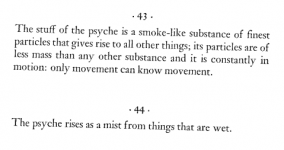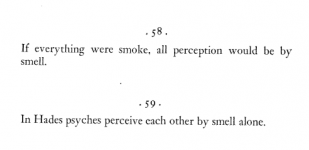sus
Moderator
Okay I have been meaning for weeks now to write up catalogs SMOG zine, the idea is to liveblog reading it in real-time, like a YouTube reaction video
I'm making this basically to put a timer on the project, it is a public commitment of intent
Why should you care? Not solely because catalog is our dear friend but also because SMOG is a carefully crafted work with something to tell us. And I am going to say what that something is. Eventually
I'm making this basically to put a timer on the project, it is a public commitment of intent
Why should you care? Not solely because catalog is our dear friend but also because SMOG is a carefully crafted work with something to tell us. And I am going to say what that something is. Eventually




